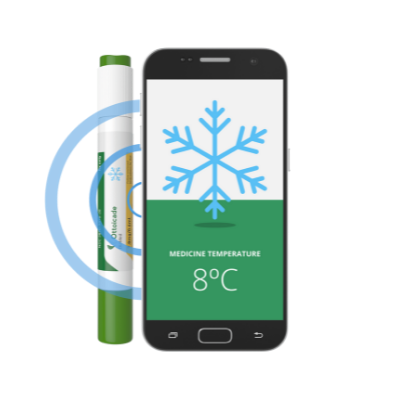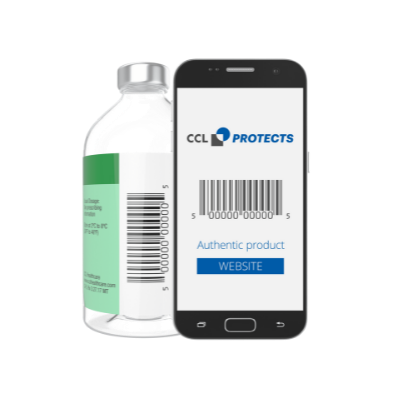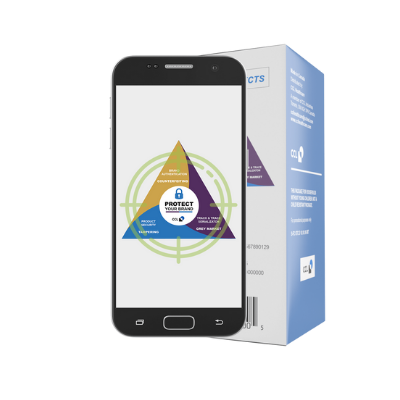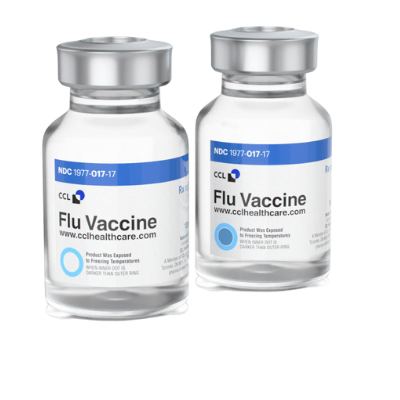RFID Product Authentication
Radio Frequency Identification

RFID Product Authentication
RFID product authentication prevents counterfeit products by creating a digital product fingerprint of the product that can not be copied. This digital product fingerprint is tied to the RFID chip unique identifier (UID), this number cannot be changed or tampered with. Further information can be encoded and locked onto the chip, allowing brands to utilize RFID throughout the supply chain, not just for authentication.
Radio Frequency Identification (RFID)
Radio Frequency Identification (RFID) technology has been gaining popularity in the pharmaceutical and healthcare industry for its ability to increase operational efficiency, reduce errors, and enhance patient safety. RFID is a contactless technology that uses radio waves to automatically identify and track objects that are embedded with RFID tags.
In the pharmaceutical industry, RFID technology is used to track drugs and medical supplies from the manufacturing plant to the pharmacy and ultimately to the patient. The RFID tags are affixed to the drug packages, enabling the tracking of the products through the supply chain. This allows for improved inventory management, reduced theft, and more accurate record-keeping. RFID technology can also help prevent the distribution of counterfeit drugs, which is a major concern in many regions of the world.
In healthcare, RFID technology can be used to track medical equipment, such as wheelchairs, beds, and monitoring devices. This helps ensure that equipment is available when needed, reducing wait times for patients and improving overall efficiency. RFID technology can also be used to track patient movements and ensure that they receive the right treatments at the right time.
Another application of RFID technology in healthcare is the use of RFID-enabled wristbands for patient identification. These wristbands contain patient information, such as their name, medical history, and medication information. This helps prevent errors in patient identification and medication administration, which can have serious consequences for patient safety.
RFID technology has many potential benefits for the pharmaceutical and healthcare industry. It can help reduce costs, increase efficiency, and improve patient safety. As the technology continues to evolve, it is likely that more applications will be developed, making RFID an increasingly important tool in the healthcare industry.
Contact Us
Contact a Packaging Specialist.
Request a Quote
Do you need a Quote for Smart Packaging?
Newsletter
Stay connect with CCL Healthcare
CCL Healthcare is market leader custom cGMP printed packaging solutions. We offer the industries largest array of printed packaging and functional secondary packaging products. The products shown on the website are only a small sampling of the formats, constructions, and configurations. To discuss your unique or custom packaging needs, please contact a packaging specialist.
Why CCL Healthcare for Smart Packaging
CCL Healthcare is a leading provider of smart labels and packaging solutions that help brands connect with their consumers in meaningful ways. With smart packaging, brands can provide consumers with a digital experience that traditional packaging simply can’t offer. This technology has the ability to transform the packaging landscape, providing a range of benefits to consumers and patients alike.
One of the most significant benefits of smart packaging is its ability to provide authentication and tamper-evident features. This ensures that consumers can trust the products they purchase and use, and can be confident that they are receiving genuine goods. Additionally, smart packaging can provide medication adherence tracking, enabling patients to monitor and manage their medication schedules more effectively.
Smart packaging also has the potential to enhance the consumer experience in other ways. For example, brands can use smart packaging to offer product re-ordering, loyalty programs, and rewards, incentivizing consumers to stay loyal to their brand. Brands can also use smart packaging to deliver a range of rich multimedia experiences, including videos, gamification, and coupons.
Beyond enhancing the consumer experience, smart packaging can also help to capture critical data that can be used to promote healthy lifestyle changes and increase health outcomes. For example, smart packaging can be used to track health behaviors, medications, and other health-related metrics, enabling healthcare providers to identify trends and develop more effective interventions.
Smart packaging represents a significant opportunity for brands to engage with their consumers in more meaningful ways, and for healthcare providers to improve patient outcomes by leveraging the power of technology. With CCL Healthcare at the forefront of this revolution, brands and consumers alike can look forward to a brighter future of smart packaging solutions.



